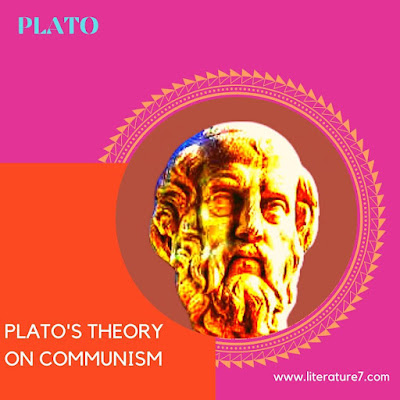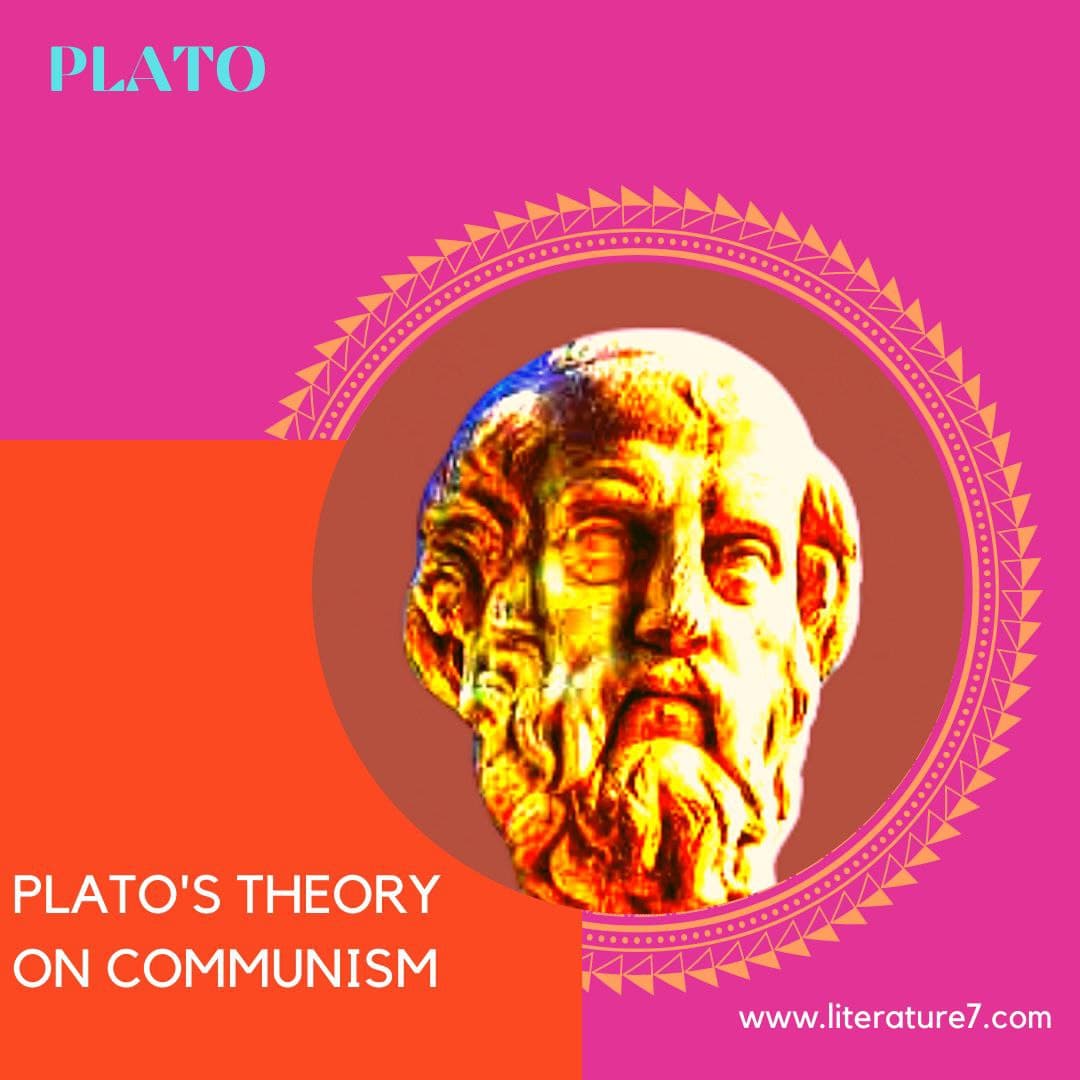Critically examine plato’s theory of communism

Plato’s Ideal State of the Republic is a revolutionary social system in which philosophers (guardians) and warriors (auxiliaries) reside under communism as a system.
Plato’s communism includes two aspects which are: communism in property and communism in the family. The institution of property and family will be eliminated for the two classes of the upper class as Plato believes they (property and the family) hinder the process of achieving justice. Elimination of family and property will allow the two classes of upper class to fulfil their duties with a high degree of efficiency and with no self-interest. The two upper classes symbolize rationality and a sense of spirit. They must be confined to these two elements and abstain from the element of appetite.
Plato declares, “Gold (reason) and silver (spirit) We’ll tell the people (Guardians) about the blessings they are being given by God the most divine of metals is within them, and they are; therefore, no need for that earthly dust (something which is of extremely low quality, i.e., cash) … for the commoner metal) has been the basis of many sinister acts.”
Plato’s theory of communism is half communism
Plato’s communism can be described as “half-communism.” It is intended to be used by the two upper classes (Philosophers as well as Warriors) only. They are to be free from the burdens of economic as well as domestic issues. So Plato’s communism is one form of “military monasticism” in which no family separate from the other is allowed, where the barracks are commonplace, where a common lifestyle is enforced, and private property is prohibited.
Read more Plato is idealist but Aristotle is realist. Discuss.
In the words of Plato, “Both the community of property and one of the families, according to what I am declaring, create guardians who are more genuine guardians. They won’t break up the city because they differ on “mine” or ‘not mine.’
Motivation Behind Plato’s Communism
Plato proposes communism in family and property to end the social divide caused by the greed of people and the pursuit of luxury. Simple living does not please those who are attracted, ambitious, competitive, and insecure. Since they’re not satisfied with their current situation and have a lot to offer, they seek out the things that other people have, and thus there are rivalries, conflicts, and conflicts are created.
Plato states, “Any ordinary city is actually two cities: one is being the cities of poor, and the one of the wealthy both at war with each other.” To avoid conflict, Plato suggests communism for the guardians. According to Plato, they are the subjects of extraordinary regulations as they are entrusted with extraordinary obligations to fulfil. However, producers can own the family and property as well.
Read also ARISTOTLE’S VIEWS ON DEMOCRACY
According to the Platonic plan of communism, the warriors and the philosophers should not be devoted to the family or property but to the common good. They are not entangled in any activity that does not meet their goals. The main goal for the government is to eradicate confusion, discord, and disorientation and replace them with unification. And there is unity when there’s a commonality of both pleasures and aches. Plato’s words say, “Where there is no shared, but only private feelings an unorganized state.” Therefore, he suggests that communism is the answer to this issue of private interests.
Communism of Property
Plato supports communism in property on three bases. The first is that it is unaffected by his concept of justice. Two classes of the upper class should adhere to a system of communism in order to be able to carry out their tasks properly. They are the fundamentals of reason and spirit and must abandon the notion of appetite.
Second is the real-world basis for Plato’s communism. Plato is wise enough to recognize that the fusion of political and economic power together is detrimental to the integrity and effectiveness of the administration. He, therefore, recommends the separation of power in politics concerning economic power.
The third reason for Plato’s communism is that guardians have specific tasks to complete and comply with specific rules. They will be stripped of silver and gold. They will not have property; they will reside in common barracks, which the state maintains at the cost of. They’ll even have to eat all the food items that are on the tables of the commons.
Critique Evaluation
Plato’s property communism is criticized for many motives:
- Plato’s communism is agnostic to the producer class. It’s half communism. It is designed for the upper classes and not for the production class.
- Plato’s communism splits the people into two categories: ‘haves’ and “have-nots.’ The system thus renders unity ineffective.
- The communist system will cause discontent among the guardians. They are very effective and gain less.
- The property, in general, is to be owned by a private person. If an individual owns something that is himself, he can work harder.
- Plato’s communism is a misunderstanding of the psychological nature of humans. The notion of property has been around for a long time, and every person has the instinct to own possession.
- It’s negative in its nature. It is not aimed at the well-being of the material of the community.
Aristotle’s Critique on Plato’s Communism of Property
Aristotle critiques Plato’s communism on the property based on the following arguments:
- The monopolization of property could destroy the feelings of benevolence and charity.
- It stifles the natural nature of pride and instincts.
- It is not a way to encourage the unification of the state. The real way to promote unity is through a well-informed education, not communism.
- It splits the state into two different groups of people. This makes the unity of the state a challenge.
- It can cause inefficiency, indifference, and underproduction because of common neglect.
- Property is the most communicative remedy for spiritual diseases that is material. The social evils originate from the sinfulness of human nature, not the system of property.
